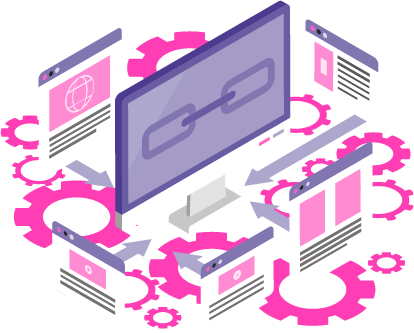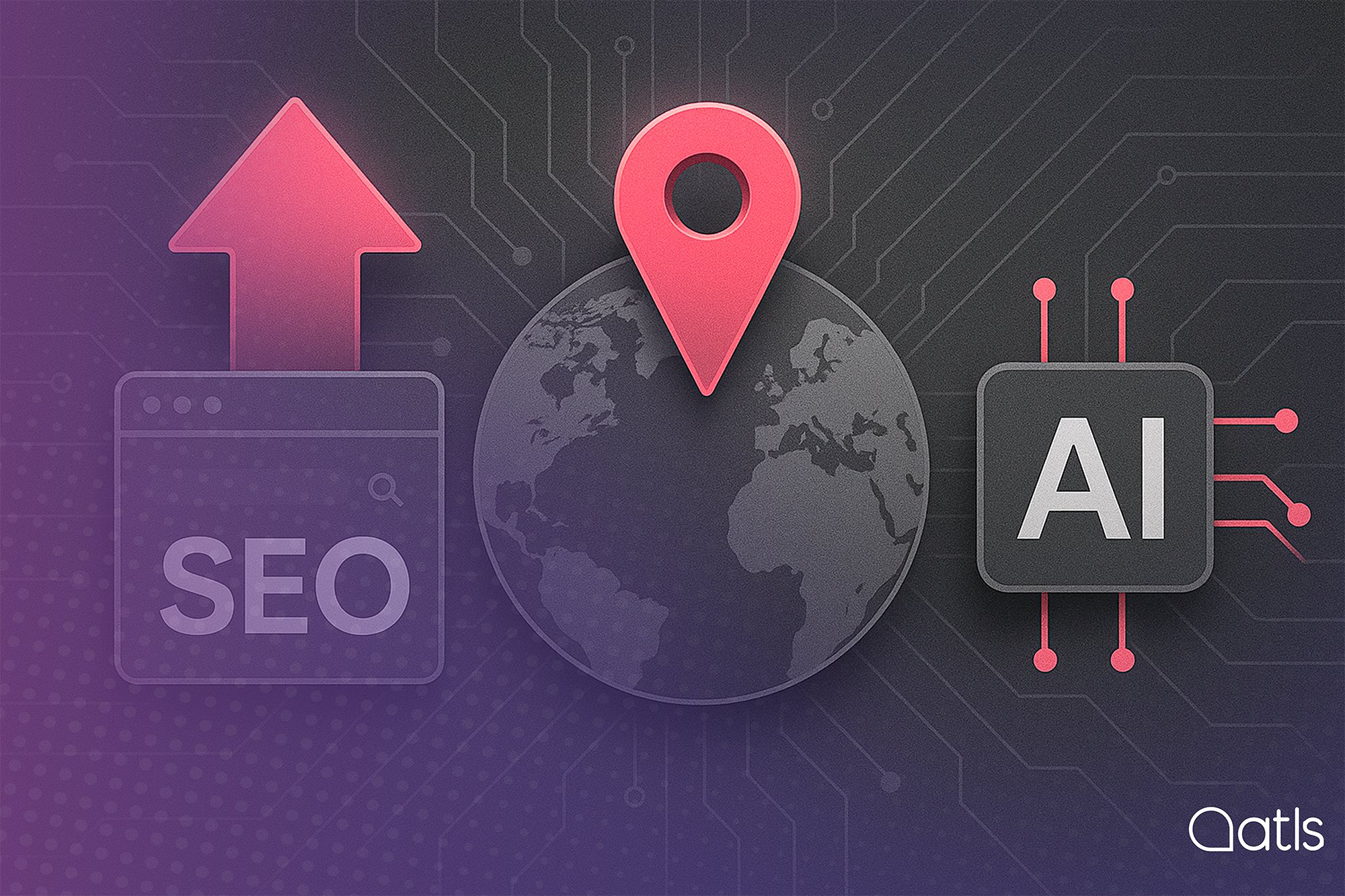For over twenty years, SEO has been the undisputed king of digital marketing. We all sought to be on the first page of Google - and if it was in top spot, all the better - as if that would guarantee us a direct route to online success. To achieve this, we learned the rules of the game by heart: keywords here, optimised content there, well-placed links as if they were the pieces in a perfectly aligned set of dominoes. And for a long time, it worked.
However, as in any good series, the script has taken an unexpected twist. Enter generative artificial intelligence - yep, the kind that sounds like something out of science fiction but is already in our searches, emails and even the fridge - and suddenly everything changes. Tools such as ChatGPT, Gemini and the new Bing no longer just show you a list of links: now they reply to you directly, as if they were that friend who always has the right answer (although this time based on millions of pieces of information).
And this is where GEO (Generative Engine Optimisation) comes in, which is not a new trendy acronym to impress at a meeting (although you might try it) but rather a new way of understanding online positioning. It is no longer just about being among the first results but instead appearing in the answers generated by these artificial intelligences when someone asks a question.
In this post we unpack exactly what GEO is, how it's turning the world of digital marketing upside down and - very importantly - how you can tweak your strategy so that you don't get left out while the rest of the world is already talking to AI. Because one thing is clear: if you're not in the answers, you're simply not there.

What is GEO and why should you care about it?
GEO (Generative Engine Optimisation) is like the modern and technologically advanced cousin of SEO. While classic SEO is based on looking good in Google's rankings like someone trying to stand out in a classroom packed full of eager students, GEO plays on another level: artificial intelligences that not only search but also understand, interpret and respond. So it's no longer about beating the algorithm but rather being liked by an AI that writes better than many humans.
And yes, we're talking about systems such as ChatGPT (by OpenAI), Gemini (by Google) and Bing Chat (by Microsoft). All of them run on state-of-the-art artificial brains - GPT-4, PaLM, and more to come - that not only crawl content but also read it, process it, cross-reference it with other sources, and then deliver it in the form of a brilliant, direct answer. And the click? Well, it's often no longer necessary: AI has already given the user what they were looking for before they even touched their mouse.
That is a gamechanger. It's no longer enough to ask whether you're on Google's first page. The key question now is:
“Does my brand, product or content show up in what an AI answers when someone does a search that is important to me?”
Because it's no longer just about being there and instead about being part of the story that AI is telling. If you're not in that story... spoiler: you simply don't exist for a good portion of the most digital (or impatient) users on the planet.
In short, GEO is a new way of understanding online visibility. It's no longer about just getting a few keywords right. Now it's about making your brand relevant, recognisable and trustworthy in the eyes - or language model - of the AI. You have to be mentioned, cited, referenced... and understood.
So yes, this is about more than SEO. It's another language, another mindset. And the sooner you start speaking it, the better.
From keywords to “I understand what you mean”: the new approach
One of the biggest (and most interesting) changes brought about by GEO is that keywords are no longer as important as they used to be. Repeating "comfortable women's red shoes" fifteen times per paragraph to climb Google rankings... well, now it just makes your website look like it was written by a robot in a hurry. Ironic, isn't it? Because today the real robots - the generative artificial intelligences - are the ones that write better and understand even when you barely know how to frame the question.
New search engines, such as ChatGPT or Gemini, no longer look for single words but instead for entities and connections between concepts. They don't just notice what you say but also who says it, how you say it and how it relates to everything else they know about the world. What they are interested in is not that you shoehorn a keyword in but rather that your brand is well positioned in the AI's mental map as a secure and consistent node in a knowledge network.
This is a sea change in approach. To be in the AI-generated answers, your brand not only has to exist online but it also has to make sense in the digital context. And to achieve this, there are three key things you should start doing (if you're not already doing them now):

- Create content with care (and context)
Forget about repeating magic words. Create deep content that answers real questions, explains things with examples, connects with other related topics... in short, content that AI can understand, value and use without having to guess what you meant. - Be in the digital ecosystem... as a whole
Your website is all well and good but it can't do everything on its own. Nowadays, you also have to appear in specialised media, marketplaces, databases such as Wikidata or Crunchbase, professional social networks, forums, podcasts... Anywhere where AI can find you and say "hey, this brand knows what it's talking about". - Optimise your brand as if you were built out of LEGO
Name, description, category, sector, links, location, logo... everything that defines you as a digital entity has to be sorted, updated and consistent. Because if you aren't clear with your own information, imagine an AI that has to understand you out of millions of other pieces of information.
In a nutshell, switching from SEO to GEO means stopping writing for search engines and starting to communicate with artificial intelligences. And no, you don't need to speak in a robotic voice. You just need to be clear, consistent and where you should be, saying what you should be saying... so that it makes sense to humans and machines alike.
Authority is no longer measured by links alone
There was a time when inbound links were the holy grail of SEO. The more you had pointing to your website - and if they came from "respectable" sites, all the better - the more authority Google ascribed to you. It was like a kind of digital popularity contest: if others were talking about you, you must be important.
And yes, that still counts... but now the rules have changed. In the GEO era, it is not enough to be linked to: you need to have something to say, something to contribute, and someone - human or AI - must want to cite you about it. This is because AIs don't just look at how many links you have but also at who mentions you, in what context and with what intention.
Today, AIs analyse content patterns, cross-reference sources, spot inconsistencies and assess whether what you're saying carries weight or whether you're just parroting what others have said beforehand.
So instead of getting obsessed with building up links, pay attention to these indicators that do make a difference for generative engines:
- Citation in influential media
Not just any old blog on the web will do. Mentions in specialised media and industry publications count for a lot. If someone with authority quotes you, AI will factor it in... just like any human who trusts The Guardian more than "OddNews123.com". - Real opinions from real people
What users say about you on platforms such as Trustpilot and G2 or in specialised forums is now more visible than ever. And no, you can't disguise it with made-up reviews: AIs spots them. Honest opinions outweigh a thousand slogans. - Engaging in communities
If you share knowledge, answer questions or collaborate with other professionals on sites such as Reddit, Quora or any other community in your niche, you're building digital reputation. And AI sees it. You're in the conversation and that positions you. - What AI says about you... when it's asked
Do the test: ask ChatGPT or Bing Chat about your brand. Are you there? Does what they say make sense? Or do they mistake you for a plumbing firm from another country? The answers they generate are based on what they know about you. If they don't know anything, they just... ignore you. And that, believe us, is worse than being on Google's second page.

In short, authority is no longer earned by links alone: it's built with meaningful presence, value contributions and consistency on all fronts. If you want AI to keep you in mind, it's not enough just to be there: you have to stand out discerningly and build a digital reputation which says good things about you even when you're not in the room.
How can you tweak your digital marketing strategy?
Artificial intelligence has changed the rules of the game, and that means completely rethinking how we build brand visibility. Optimising for traditional search engines is no longer enough: now the challenge is to become a robust, recognised and useful source for generative engines. Here are five key steps to bring your strategy into line with this new scenario:
- Enhance your digital identity
Conduct an overall review: your website, your networks, your corporate descriptions, your directory listings... is everything up-to-date and in the same tone? Or does each channel look like it was written by a different person in separate years? Digital consistency is not optional. AIs need to see a clear, well-defined and congruent brand to understand that you are "somebody" on the map. If you yourself are confused by your own bio, imagine what it's like for AI. - Create content that speaks like a person
Today's searches sound more like this: “What's the best software to manage a remote computer without dying trying?” And AIs respond in kind. That's why useful, straightforward, conversational content works best. Complete FAQs, posts that answer real questions, practical guides... Put yourself in the user's shoes and ask yourself: Is this really helping them or am I just making their head spin? - Secure your place in the databases that AIs do consult
Wikipedia, Wikidata, Crunchbase, industry directories... They aren't “pretty” or fun places but they are the sources which artificial intelligences tap. If you're not there, it's as if you don't exist. And if you are, make sure that the information is correct. - Partner with industry experts and media
Have you been quoted in an industry media outlet or taken part in an interview or opinion piece? These mentions are pure gold, not only for humans but also for machines. AIs interpret it as: "hey, this brand is endorsed by serious people", and that scores you points. So look for collaborations, appearances, publications... and get out of your digital bubble. - Ask AI about yourself (seriously)
Go to ChatGPT, Bing Chat or Gemini and ask them: “Who is [your brand name]?”
Their answer will be a mix of everything they know about you. If they don't say anything... not good. If they say weird things... even worse. This is like looking in an AI mirror: it gives you insights into how these platforms perceive you, what you are doing well and where you need to improve.
In short: it's no longer enough just to be on Google. Now you have to be present in the smart answers people get when they make a query without needing to click a link. To do this, you need a robust strategy, well laid out and tailored to this new conversational era.
ATLS and the future of multilingual positioning
At ATLS we've been helping brands talk to the world for over 25 years, and not just by translating words but also conveying meaning, intent and personality in every language. Because if there's one thing we know from experience, it's that the future of online positioning is not just generative... it's global, multilingual and deeply contextual.
Artificial intelligence has changed lots of things including the language we search in, the nuances we expect to find and the channel in which we make a query, from a voice search to a message in an e-commerce chatbot. And in this scenario, translating content word for word is not enough: it's now about making sure the message works, connects and resonates with that particular person, in that particular language, at that particular time.
So at ATLS we are committed to technological innovation in language issues.
We harness cutting-edge AI-based solutions applied to language which means we can work with greater precision, more consistency and shorter turnaround times without compromising on quality or control over what really matters: the message.
Our approach is not restricted to “being translated”: we strive to ensure your brand is optimised to be understood, valued and visible in all scenarios from a search in Portuguese to an AI-generated voice response in English.
Because in a borderless digital world, the trick is not just translating: it's connecting. And we have a lot of experience in doing just that.

From visibility to recognition in the AI era
For a long time the goal of digital marketing was pretty straightforward: to be at the top of Google. And let's not kid ourselves; seeing your website in first place was a bit of a thrill. But now the game has changed. Today, it's not enough to be visible; you need to be part of the answer.
Because now decisions are not made after clicking on several links, comparing prices and reading three posts. No. Decisions come earlier, when an AI - very politely - gives you the perfect packaged answer. And if your brand isn't there, in that well-constructed sentence that appears straight away... tough luck: you simply don't exist for that user.
GEO is not about to retire SEO, so don't worry. However, it is here to give it a new wrinkle, bring it up to date and get it ready for an environment where searches are more like conversations and less like shopping lists. It's not just about ranking: it's about being recognised for contributing something worth mentioning.
Positioning your brand in this new setting means that when someone asks a question, AI thinks about you as a source of value. It knows that your content is consistent, your message makes sense and your digital presence is so well-built that it's only natural to mention you.
Because let's be clear: today it's not enough just to be on the Internet. You have to be in the minds - or in the database - of the AIs which are shaping the way people search, compare and decide.
And if you're not in their answers... then you're not in the conversation.
Ready for AI to talk (nicely) about you?
If you want your brand not only to appear on the Internet but also be part of the answers generated by AIs, it's time to step up to the plate. Because in this new digital scenario, it's not enough to be visible... you have to be relevant, clear and multilingual (and, if possible, sound good in all versions).
At ATLS we help you take this leap with a smart combination of state-of-the-art language technology, global strategy and human expertise. We're not selling snake oil; we're selling positioning that understands how the world works today: with voice searches, instant answers and users who expect to find it all... without looking too hard.
So if you want to engage with your customers in any language, from any channel and via any smart engine, let's talk.






